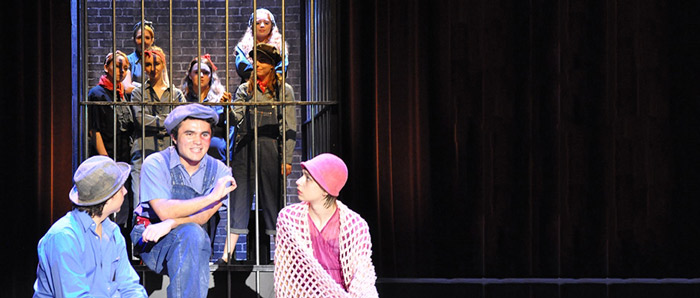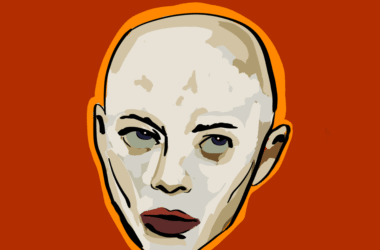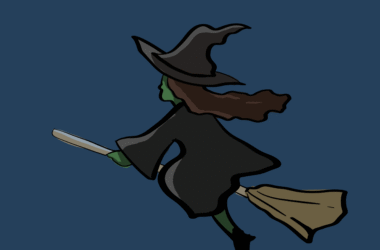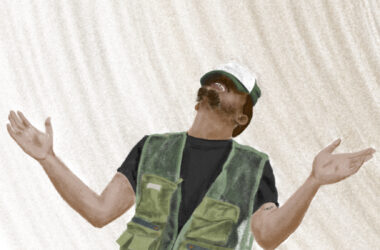The McGill English Department’s production of The Cradle Will Rock will show Thursday, Nov. 30 to Saturday, Dec. 4. at Moyse Hall.
Today, Marc Blitzstein’s musical The Cradle Will Rock (1937) is remembered not for its content, but for the outrage sparked by its original production. Directed by Orson Welles (Citizen Kane), Cradle was shut down by the government four days before its opening night because of some important budget cuts and its radical pro-union stance. With sets and costumes guarded by federal police and performers forbidden from getting on stage by their union, Blitzstein rented a theatre and piano and set out to sing the musical alone in front of the largest audience he could attract. The Cradle Will Rock got a full house; cast-members chimed in from their seats, and modern theater history was made. It’s a great origin story, one that has a lot to say about the era’s tense fight for workers’ rights and the American government’s irrational fear of communism.
The work itself, which recounts Larry Foreman’s attempt to unionize Steeltown, pits America’s workers against the will of big bad capitalist Mr. Mister and his corrupted Liberty Committee, is of much lesser interest, dealing in broad strokes and simple rhetoric. Luckily, director and English Department professor Myrna Wyatt Selkirk chose to mix the two narratives, and her production is all the better for it.
As the lights go out, a pianist (Emmanuel Eustache on Thursday, Paul Keenan for all other performances) comes out on his own, the way Blitzstein must have 80 years ago. He sits behind his instrument, located in the middle of the plain stage between a prison cell and a tribunal. In the first scene, he directly addresses the audience. The music starts, and prostitute Moll (Mitchel Csmerak in drag) comes out from behind the audience, singing the famous “Moll’s Song (I’m Checkin’ Home Now)” as she walks down the aisle. These first few seconds signal one thing: In this play, the fourth wall does not exist. Characters come up and down the stage, crack jokes with audience members, and sit with the crowd to watch scenes from afar. As gimmick-y as it may sound, this is all part of a playful take on the piece’s famed history; an effort to recreate what it must have felt like to watch a play take place not on stage, but all around you. And it works.
This audacious meta-layer helps elevate a thin script. Although acted and sung with commitment by an all-around game cast (special mentions to the charismatic lead Nick Vecchione and the naturally gifted singer and comic actress Maddy Corvino), there is simply no getting around the fact that Blitzstein’s blunt lyrics often sound more like angry union advertisements than thoughtful social satire. Most of the thematic exposition staggeringly on the nose, frequently rupturing audience engagement. The main theme of corruption of the social elite by the powerful few is so overwrought that it is hard not to cringe every time a worker calls a priest, a journalist, or an artist a “prostitute.” These characters, almost all stereotypes, are either too over-the-top or not enough. We quickly start to miss the grounded nature of Moll, who inexplicably spends most of the running-time watching the scenes unfold from the balcony.
Fortunately, there is enough frosting here to distract from this needlessly loud propaganda of a cake. The McGill Department of English Drama & Theatre Program’s The Cradle Will Rock is a fun time full of catchy tunes, willing performances, and interesting historical references. Just make sure to read about the play’s history before you buy your ticket.
Moyse Hall is located in the Arts Building at 835 Sherbrooke Street West. Tickets for The Cradle Will Rock can be purchased over the phone at (514) 398-6070 or via email at [email protected]







